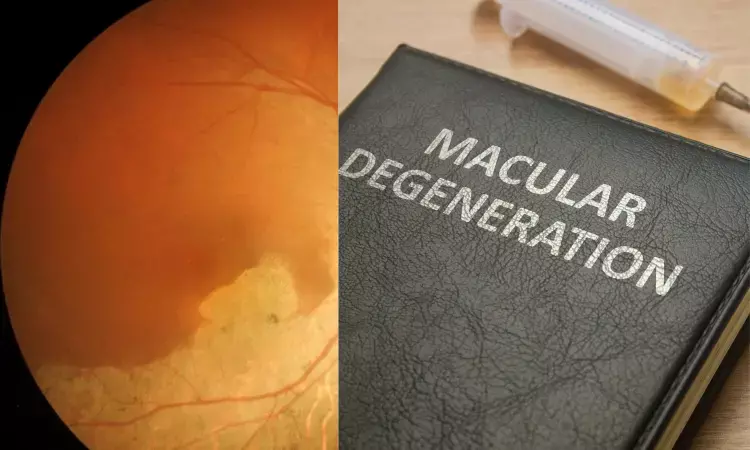- Home
- Medical news & Guidelines
- Anesthesiology
- Cardiology and CTVS
- Critical Care
- Dentistry
- Dermatology
- Diabetes and Endocrinology
- ENT
- Gastroenterology
- Medicine
- Nephrology
- Neurology
- Obstretics-Gynaecology
- Oncology
- Ophthalmology
- Orthopaedics
- Pediatrics-Neonatology
- Psychiatry
- Pulmonology
- Radiology
- Surgery
- Urology
- Laboratory Medicine
- Diet
- Nursing
- Paramedical
- Physiotherapy
- Health news
- Fact Check
- Bone Health Fact Check
- Brain Health Fact Check
- Cancer Related Fact Check
- Child Care Fact Check
- Dental and oral health fact check
- Diabetes and metabolic health fact check
- Diet and Nutrition Fact Check
- Eye and ENT Care Fact Check
- Fitness fact check
- Gut health fact check
- Heart health fact check
- Kidney health fact check
- Medical education fact check
- Men's health fact check
- Respiratory fact check
- Skin and hair care fact check
- Vaccine and Immunization fact check
- Women's health fact check
- AYUSH
- State News
- Andaman and Nicobar Islands
- Andhra Pradesh
- Arunachal Pradesh
- Assam
- Bihar
- Chandigarh
- Chattisgarh
- Dadra and Nagar Haveli
- Daman and Diu
- Delhi
- Goa
- Gujarat
- Haryana
- Himachal Pradesh
- Jammu & Kashmir
- Jharkhand
- Karnataka
- Kerala
- Ladakh
- Lakshadweep
- Madhya Pradesh
- Maharashtra
- Manipur
- Meghalaya
- Mizoram
- Nagaland
- Odisha
- Puducherry
- Punjab
- Rajasthan
- Sikkim
- Tamil Nadu
- Telangana
- Tripura
- Uttar Pradesh
- Uttrakhand
- West Bengal
- Medical Education
- Industry
Increased intake of dietary calcium reduces risk of Age-related macular degeneration

A study published in Nutrients has explained the importance of dietary intake of calcium in preventing Age-related macular degeneration (ARMD). The researchers of the study have linked lower calcium intake with increasing incidence of Age-related macular degeneration (ARMD).
Age-related macular degeneration (ARMD) causes vision loss due to non-neovascular and neovascular impairment. It has two types, dry form and wet form. Treatment modalities are available, including laser photocoagulation and vascular endothelial growth factor inhibitors, but these lack effectiveness in the long run.
Several environmental factors tied to ocular disorders are smoking, lifestyle behaviours and alcohol. Nutrition may play a key role in preventing ARMD. Evidence suggests that vegetables, fish and fruits, antioxidants, vitamins, zinc, and copper reduce the risk of ARMD.
Low consumption of carotenoids and omega-3 fatty acids increases the progression of ARMD. There is a scarcity of evidence on the association between dietary micronutrients and ARMD.
Considering this background, researchers examined micronutrients' harmful or protective role with ARMD. Dr Yuan-Yuei Chen from Tri-Service General Hospital, Taiwan, was the study's lead researcher.
The study summary includes the following:
- The study had 5227 participants from NHANES, 2005–2008.
- ARMD was evaluated with an ophthalmic digital imaging system and digital camera.
- Using 24-hour dietary recall, Mineral element consumption was collected.
- Multivariable logistic regression determined the association.
- There was a negative association of dietary calcium with ARMD.
- The serum concentration of calcium has no association with ARMD.
- ARMD is reduced by increasing dietary calcium.
To conclude, lower dietary calcium increases the risk of ARMD.
The researchers said calcium is an essential micronutrient involved in vital functions of the body. Our study's findings highly pointed out that specific micronutrients are beneficial in preventing the progression of ARMD.
Further reading:
Chen, Y.-Y.; Chen, Y.-J. The Relationship between Dietary Calcium and Age-Related Macular Degeneration. Nutrients 2023, 15, 671. https://doi.org/10.3390/nu15030671
BDS, MDS in Periodontics and Implantology
Dr. Aditi Yadav is a BDS, MDS in Periodontics and Implantology. She has a clinical experience of 5 years as a laser dental surgeon. She also has a Diploma in clinical research and pharmacovigilance and is a Certified data scientist. She is currently working as a content developer in e-health services. Dr. Yadav has a keen interest in Medical Journalism and is actively involved in Medical Research writing.
Dr Kamal Kant Kohli-MBBS, DTCD- a chest specialist with more than 30 years of practice and a flair for writing clinical articles, Dr Kamal Kant Kohli joined Medical Dialogues as a Chief Editor of Medical News. Besides writing articles, as an editor, he proofreads and verifies all the medical content published on Medical Dialogues including those coming from journals, studies,medical conferences,guidelines etc. Email: drkohli@medicaldialogues.in. Contact no. 011-43720751


